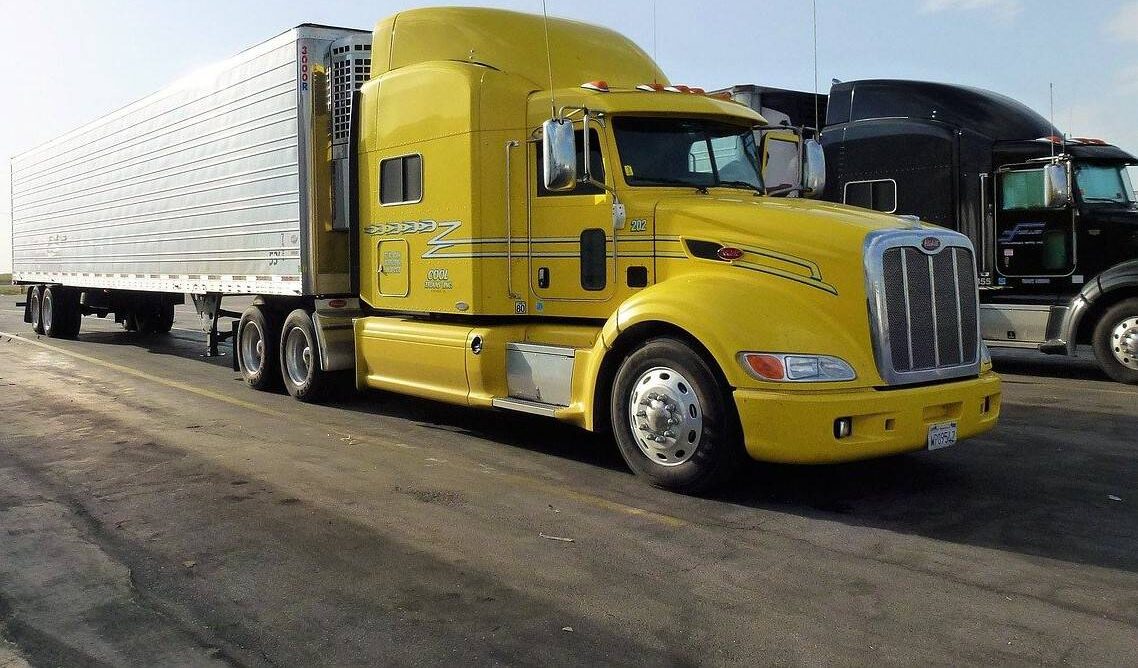A major consideration to make when evaluating if it’s time to transition from being a company driver to an owner-operator can be brought up with the question, “How much do owner-operators make?” Total compensation will depend on load types, experience, business management skills, and other factors, but the average owner-operator salary, according to Indeed, is $167,969.
Learn all about the many factors that come together to affect an owner-operator’s salary. Plus, keep reading to hear about a few other major considerations that should be made before you leave the job security of your current trucking position in favor of becoming an owner-operator.
Owner-Operator Salary
When evaluating truck owner-operator salary, you’ll need to take a look at both gross salary and net salary. Gross salary evaluates the total income of an owner-operator before expenses. Net salary is how much the owner-operator earns after expenses. The net salary is the owner-operator take home pay or what goes into their personal bank account.
Before setting prices and negotiating rates with carriers, owner-operators need to understand their expenses in-depth and how those will impact their final salary. That way, they take on loads with the best profitability based on their specialty and use their time wisely.
How Do Owner-Operators Pay Themselves?
Owner-operators structure their compensation in one of two ways: percentage of load or mileage. Learn more about how these calculations work before determining fair compensation rates.
Percentage of Load
Some owner-operators charge a percentage of the load revenue. This can vary anywhere from 25% to 85%. The challenge with this way of charging customers is that income can be extremely variable due to the various types of loads you can take on. Depending on the value, you might fail to break even on some loads.
Mileage
Regardless of revenue for the load you carry, you make a set amount per mile that you transport the load. This provides far greater consistency in income than the other method of charging customers and ensures you cover your expenses for every load. However, you can also miss out on large payouts for short distances using this method because a percentage of the load can be quite lucrative.
How Do Owner-Operators Make the Most Money?
Owner-operators are essentially small business owners or sole proprietors. Understanding the business of trucking is essential to optimize income. While minimizing expenses and increasing profit margins are essential to every business, owner-operators have additional considerations when looking for ways to make the most money.
- Start with your own authority. Getting your own motor carrier number can take a few months, but it’s so worth it. This allows you to haul freight as your own business and be your own boss.
- Avoid too much downtime. The more frequently you are moving loads, the better your income will be. Using load boards can help owner-operators stay busy to continue making money.
- Work with good accounting and billing software. Auto-billing a client can help ensure you issue bills quickly to get paid quickly. Plus, you’ll save time in managing your books, which provides you more time to find and move loads to keep the money coming in.
- Optimize cash flow using factoring. If you’re facing challenges with needing truck maintenance or other expenses without the cash flow to pay for it, factoring can help you do it. That way, you’ll get a large percentage of the total invoice amount that’s outstanding from a client to pay for essentials while the factoring company ensures the client pays the invoice.
- Reduce liability with cargo insurance. One accident or loss could lead to major setbacks financially. Avoid those risks with good cargo insurance with policy limits that protect your liability based on the value and types of loads you carry.
Reducing Expenses & Take Home More
One of the best ways to improve owner-operator take-home salary is to reduce expenses. Truckers have many required expenses that they cannot eliminate entirely. However, shopping around and optimizing expenses is a worthwhile activity. Here’s a look at some ways to reduce even necessary expenses.
- Join a fuel reward program
- Shop around for the best insurance rates based on your unique risk factors
- Maintenance your truck regularly to avoid breakdowns and disruptions to your business
- Protect your assets with various types of insurance and safety measures
Expenses Owner-Operators Have To Factor In
Being your own boss as an owner-operator requires several necessary expenses you’ll want to factor in when deciding if the job might be right for you. Here’s a look at those main expenses.
Buying a Truck
Owner-operators must purchase or lease their own truck and maintain it. The type of truck you purchase and its cost will be heavily dependent on several factors.
- The types of loads you plan to haul
- Regions and lanes you’ll operate in and their emissions testing requirements
- Your budget or the amount of semitruck financing you can obtain
- Whether you want to lease or purchase the truck
- How you’ll operate your business filing your own loads or leasing to a carrier
How much does a semitruck cost? Generally, semitrucks cost anywhere from $100,000 to $200,000 per truck, depending on the features and the upgrades you select.
Maintenance and Repairs
No matter the age of your truck, you’ll need to include the cost of maintenance and repairs in your owner-operator budget. Some regular maintenance expenses on a semi-truck include:
- Oil
- Fluid changes and refills
- Tires
- Wheels
- Compressor maintenance and repairs
- Brakes
- Fuel filter replacement
If you maintain your truck properly, it can prevent breakdowns and costly repairs. And if you need repairs you might need to let your truck sit for several days or even weeks where you aren’t earning income.
Fuel
Fuel expenses can never be eliminated. However, you can find ways to optimize your fuel by avoiding idling the truck and joining fuel reward programs. As you learn more about the specific types of loads you’ll carry and become more experienced at operating your business, you’ll be able to estimate your fuel costs using historical data.
No matter how good you are at estimating fuel costs, you’ll experience fluctuations from this expense and will need to have wiggle room in your budget to deal with this.
Insurance
Insurance can be one of the largest expenses of serving as an owner-operator. You’ll need to cover your truck as well as the cargo you carry.
Cargo insurance is essential because you could experience theft, loss, damage to goods or an accident. No matter how careful you are in operating your business with safety in mind, you could experience a loss that would damage or ruin your business if you don’t pay for insurance.
Taxes
As a truck driver working for carriers, you didn’t have to worry about paying your taxes because your employer took them out of your paycheck for you. As an owner-operator truck driver, you’ll need to calculate and pay taxes on your own.
To avoid penalties for failing to pay taxes on time, you should do the following:
- Set aside 20% to 30% of your income to pay taxes.
- Pay quarterly taxes to prevent penalties when you file your annual taxes.
- Hire an accountant. calculating taxes is challenging and requires in-depth knowledge of the tax code. Hiring an accountant will usually maximize your income because they know how to take advantage of credits and tax breaks.
- Get self-employed accounting software to track mileage and expenses to provide to your accountant each year without having to scramble to find and document the data once it’s no longer fresh in your mind.
Paperwork
Some states require that you file an annual company report. Or you might need to update your LLC licensing and pay company taxes in addition to your self-employment taxes based on how you’ve structured your business.
Make sure your motor carrier license is up to date and that you’ve filed all necessary information to retain these licenses and compliance with all rules and regulations for truck drivers.
Other Costs
Maintaining an owner-operator business can include several other costs. These might include:
- Plate and permit fees
- Truck washing
- Tolls
- Scales
- Tires
- Meals
- Parking
- Truck storage
Track all expenses related to your business to ensure you’re optimizing your income by deducting all necessary expenses to operate your trucking service.
Advantages of Being an Owner-Operator
Taking the leap to become an owner-operator has many great advantages to it. Here’s a look at some of the benefits you can experience.
- Improve your advancement and earning opportunities.
- Have control over who you work with.
- Choose the loads that most interest you and are most profitable.
- Travel to areas of interest.
- Enjoy tax deductions you couldn’t otherwise.
- Get better control over how much you work and for how much.
Disadvantages of Being an Owner-Operator
While being an owner-operator has many great perks, you’ll also need to know more about the disadvantages and risks.
- You’ll need to engage in administrative tasks, such as finding loads, interacting with customers and maintaining your truck
- The job can come with feast or famine issues where you either have too many work opportunities or not enough
- Getting started is expensive with many upfront costs
- You might experience added stress from managing a business in addition to hauling loads
Owner-Operator vs Company Driver Salary
The salary you can earn as an owner-operator vs a company driver is quite different. That’s because figuring out your salary as an owner-operator requires understanding how expenses impact your bottom line. In contrast, the salary you earn as a company driver automatically removes all taxes and fees.
Setting fair per-mile prices and percent-of-load prices will impact your owner-operator salary. And how much effort you put into shopping around for the best prices for your expenses will impact your net pay.
Additionally, a company driver’s salary is far more consistent than that of an owner-operator. That’s because you’ll likely make a flat salary or flat per-mile rate as a company driver, whereas loads will vary as an owner-operator based on negotiations and requirements from the carrier.
New Opportunities Come with Added Responsibilities as an Owner-Operator
Owner-operators have a much higher income potential than company drivers. But with those new opportunities, truck drivers need to be prepared to take on added responsibilities and learn business budgeting and management skills. If those activities sound interesting to you, it might be time to transition to work as an owner-operator.
FAQ
On average, truck owners make $13,997 per month before taxes.
Yes, owner-operators pay for fuel, but in rare cases, you might be able to negotiate the cost of fuel into contracts with carriers or shippers.
Owner-operators make quarterly estimated tax payments to the IRS. As business owners, these truck drivers are solely responsible for calculating how much they owe and paying both state and federal taxes quarterly.


